Q&A With Science Fiction + Fantasy Short Film Festival Jurors Aaron Douglas & Kate Dollarhyde
Date: August 26, 2020
Source: MoPOP
Note: This is an interview with SFFSFF Jurors Aaron Douglas & Kate Dollarhyde. I have only included the interview answers from AARON DOUGLAS below. To read the full interview, click HERE.
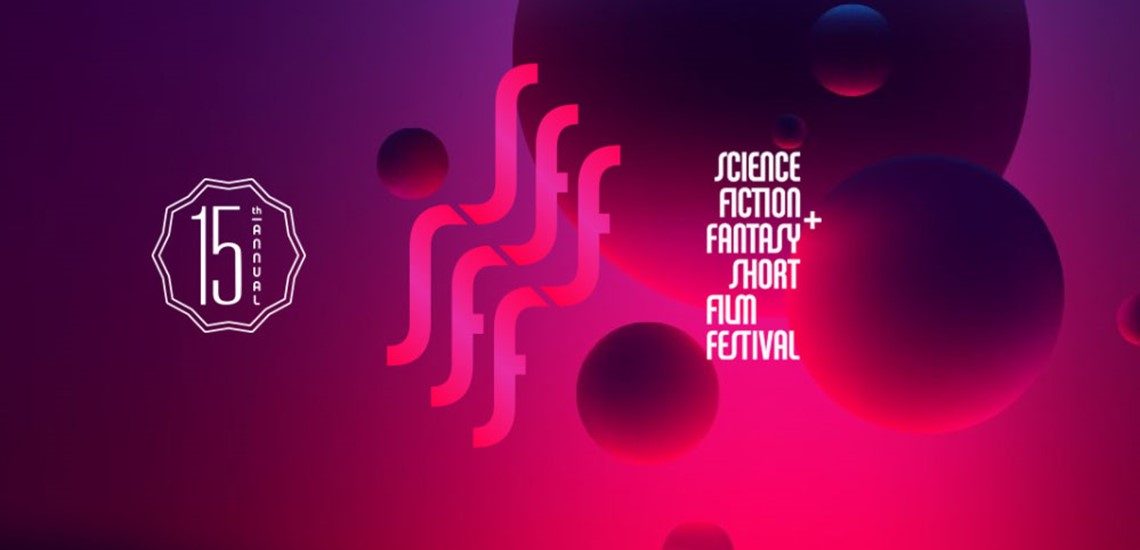
The Museum of Pop Culture in partnership with SIFF presents the 15th annual Science Fiction + Fantasy Short Film Festival (SFFSFF) live online this Saturday, August 29, with a virtual encore screening set for Sunday, August 30. This celebration of artistic excellence brings together cinema enthusiasts, filmmakers, and artists for a showcase of illuminating and unconventional films. The festival features industry professionals and genre experts encouraging and supporting new, creative additions to science fiction, fantasy, and horror cinematic arts.
Admitted films are judged by a nationally recognized jury comprised of luminaries in the fields of science fiction, fantasy, and horror, two of which we hear from today: Aaron Douglas (@theaarondouglas) and Kate Dollarhyde (@katedollarhyde).
Aaron Douglas is best known for his portrayal of Chief Galen Tyrol on Syfy’s Battlestar Galactica. With over 100 other Film-TV & Video Game credits on his impressive resume—including X-Men 2, iRobot, Stargate SG-1, The Bridge, Hellcats, Hemlock Grove, The Killing, The Returned, Falling Skies, The Strain, iZombie, The X-Files, Supernatural, The Flash, Once Upon A Time, Dirk Gently Holistic Detective Agency, Imposters, Jordi Chin in Ubisoft’s Watch Dogs, and more. Aaron is now creating and writing comic books for AfterShock Comics. His writing can be found in the first two volumes of Shock and he’s currently working on his first original graphic novel, which is slated to be released in 2020.
Kate Dollarhyde is a WGA-nominated writer of speculative fictions and the former editor-in-chief of SFF magazine Strange Horizons. As a narrative designer at Obsidian Entertainment, she’s worked on The Outer Worlds and the Pillars of Eternity series. Her short stories have been published in Fireside Fiction, Lackington’s, Beneath Ceaseless Skies, and other magazines.
Ahead of this weekend’s virtual festival, which you can find tickets for right here, we caught up with Douglas and Dollarhyde to ask them a few questions about sci-fi, fantasy, filmmaking, and more.

What did you look for when watching the shorts submitted for our 15th annual Science Fiction + Fantasy Short Film Festival?
A beginning, middle and an end. Or, if you can’t do that, then make it clear where you’ve jumped us into the story and leave it so we want more. Keep it simple and clear, it’s a short.
What is it about sci-fi and fantasy that draws you to the genre? What do you think are the genre’s weak spots?
The endless possibilities is the thing that draws me to and pushes me away. If you’re going to make a purely fantastical film make it so I can completely escape. Don’t blend in the absolutely impossible with our world, all I see is our world and I’m reminded that this isn’t real. Keep that subtle and nuanced and I can buy in. Or make Star Wars or Lord of the Rings, then I can get on board because it is purely implausible.
What are some types of sci-fi and fantasy that don’t get enough attention from filmmakers?
I would like to see more films that blend our real world with sci-fi and fantasy with the latter being used with a nuance that allows the audience to have pause and think, that could actually be real. Make films about real legends, both past and current, that are based in loose fact, perhaps even some having people genuinely believing in the phenomenon. e.g. Loch Ness Monster, Sasquatch, ancient legends, UFOs. Like QAnon, but for people who are fun and not lunatics.
Of the various components that make up a great film, what do you think are the most important to the overall success of the storytelling?
Dialogue. When I watch a film and think, “No one talks like that” I am totally out of it. Keep the story moving, don’t get bogged down in director or writer wank. Don’t spend 15 minutes on battles between giant unbreakable robots in scenes where they destroy a city throwing each other around in blinding cuts and action that can cause a seizure. It’s a wank, they’re indestructible, there’s no jeopardy because of that and because they are robots and the audience cannot identify with them no matter how much you anthropomorphize them. In other words, don’t focus on things that I absolutely don’t care about.
What are the common pitfalls that filmmakers fall into that lead to their films not being successful?
This depends on what you deem successful. Box office? Critical acclaim? A quality film? I’ve seen absolute dogs of films that have made hundreds of millions of dollars. That’s success in one sense. I’ve seen films that I have adored, yet not many others had the same view of them. I don’t listen to the critics, so I’d never base my opinion of success on what they say. It’s one person’s opinion and why is theirs more valid than anyone else’s? Make what you want to make and if you like it in the end then that’s all that matters. Unless of course you are making it for pure commercial success, then just follow the formula and make the wank that the studio wants you to make. But remember, some of the people from the studio who put their hands into the mix are not filmmakers for a reason and it is this reason, if they’re allowed to weigh in too much, then your film will go sideways.
How do you think sci-fi and fantasy will respond to the calls for social change as part of Black Lives Matter? Are there some shifts in tone/subjects on the horizon?
I hope the world of TV and film sci-fi and fantasy follows what has become the mantra for the conventions of the same; we are open to and here for everyone, regardless of culture, race, religion, sexual orientation, gender identification, etc etc. If the shifts result in everyone feeling like they have a comfortable and supported place in the room then I am all for whatever tone or subjects need to change.
Who has lifted you up and supported you and your work? How did you find them?
Specifically there are too many to name. From directors and writers, other actors, people in the industry, and those people have been found through the work. My biggest source of support is my family, my friends, and the fans. The constant fan notes of gratitude and appreciation for my work and that they seek out my work in new and even old shows is an amazing thing. When I began, my thought was I want to emotionally move someone the way I am moved when I watch a great performance. To have someone articulate that I’ve done that to them is an amazing thing.
What is the best piece of advice you have received from a mentor/colleague?
From my dad. Too many to list them all: Everything happens for a reason. Trust the process. Surround yourself with people who support you. Move those who don’t out of your life. Don’t let the highs be too high nor the lows be too low. Take your nose off the screen so you can see the full picture. Enjoy the journey of life and don’t rush to get to the destination. The universe is unfolding exactly as it is supposed to.
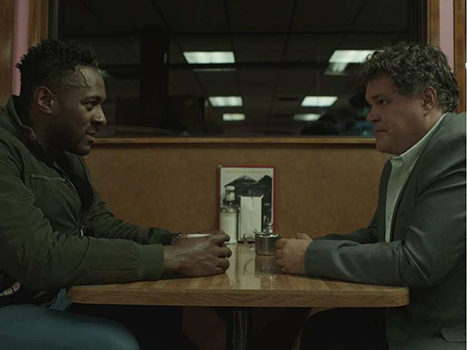
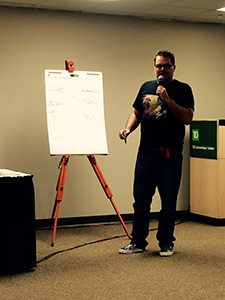 What was the most difficult stunt you were ever in?
What was the most difficult stunt you were ever in?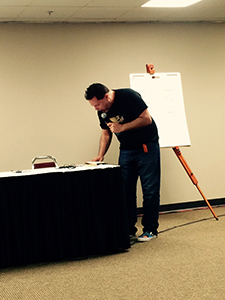 The writers of the show, they didn’t let you know you were in the final five. Did you talk to them about that? How you felt?
The writers of the show, they didn’t let you know you were in the final five. Did you talk to them about that? How you felt?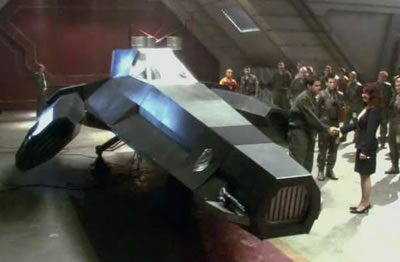 What was your favorite episode to actually film?
What was your favorite episode to actually film? 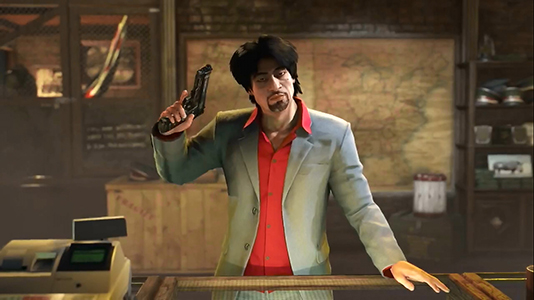 How it is different voice acting on Watch Dogs?
How it is different voice acting on Watch Dogs? 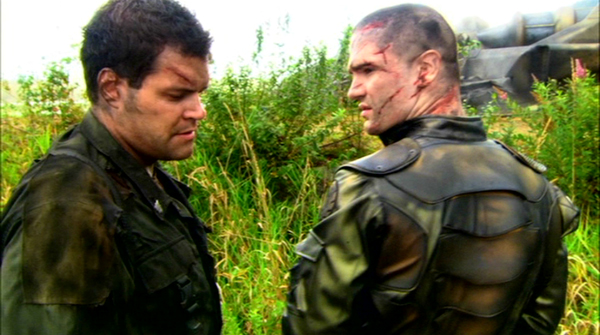 When you were doing Chief it was almost like you had a familiarity with military background and stuff, was that in your family somewhere?
When you were doing Chief it was almost like you had a familiarity with military background and stuff, was that in your family somewhere? 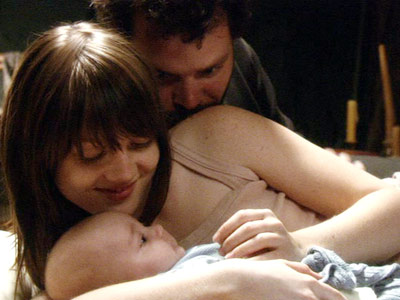 Of course Aaron Douglas being Aaron Douglas (and awesome to boot), he also included several funny stories from the BSG set throughout the panel, and I’ll leave you with two of those, because hey, everyone needs a good laugh once in a while!
Of course Aaron Douglas being Aaron Douglas (and awesome to boot), he also included several funny stories from the BSG set throughout the panel, and I’ll leave you with two of those, because hey, everyone needs a good laugh once in a while!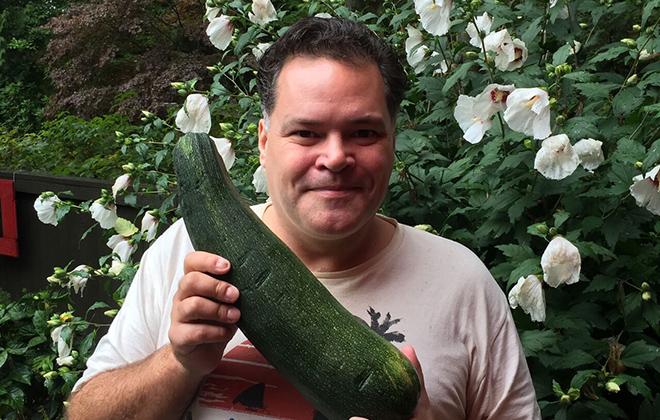

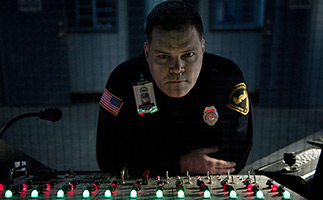 Did you do any research into the world of prisons in preparation for your role?
Did you do any research into the world of prisons in preparation for your role?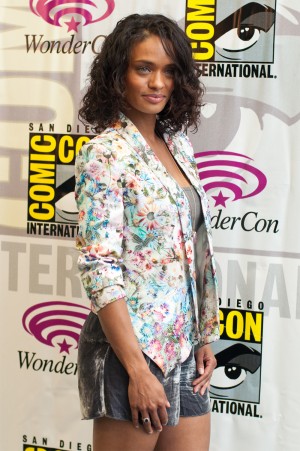
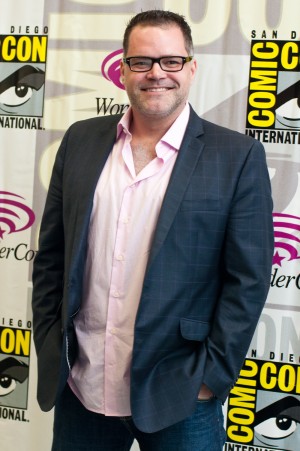
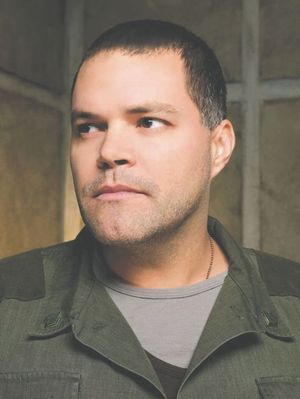 In-demand actor Aaron Douglas currently is best known for playing The Chief on “Battlestar Galactica,” but with his new Netflix-only series “Hemlock Grove,” things are bound to change. What’s Up chats with Aaron ahead of his visit to the Sun City Scifi convention and picks his brain about human nature, hockey and what keeps him up late at night.
In-demand actor Aaron Douglas currently is best known for playing The Chief on “Battlestar Galactica,” but with his new Netflix-only series “Hemlock Grove,” things are bound to change. What’s Up chats with Aaron ahead of his visit to the Sun City Scifi convention and picks his brain about human nature, hockey and what keeps him up late at night.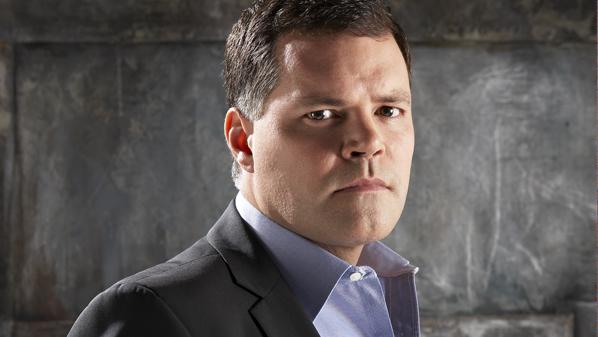
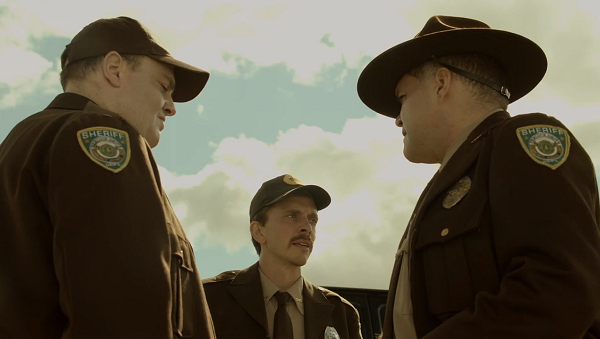
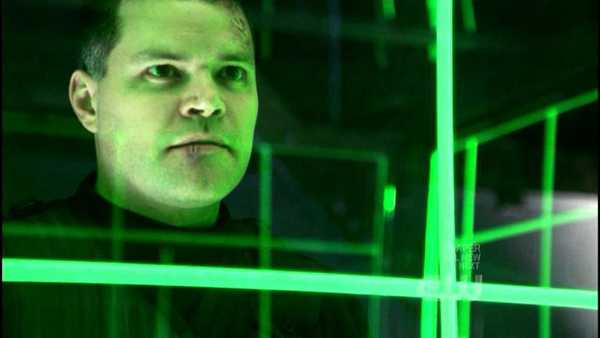
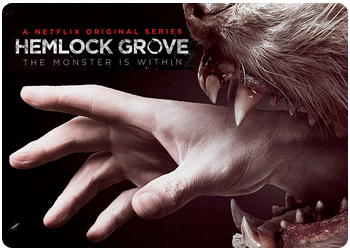

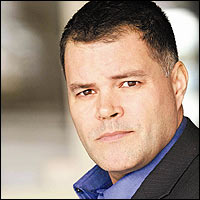 Aaron Douglas
Aaron Douglas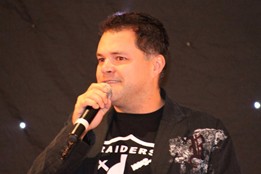 The last scene Galen Tyrol has in Galactica. It’s not specified onscreen, but the story is that the uninhabited island you leave for is Scotland. True or false?
The last scene Galen Tyrol has in Galactica. It’s not specified onscreen, but the story is that the uninhabited island you leave for is Scotland. True or false?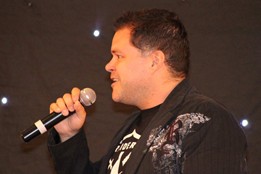 Did you ever resent being about the only one of the regulars who never got to pilot either a Viper or a Raptor?
Did you ever resent being about the only one of the regulars who never got to pilot either a Viper or a Raptor?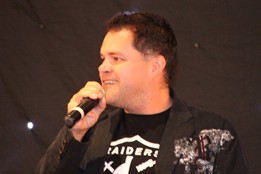 Battlestar Galactica was conceived in a time when America was in great turmoil, with the nation polarised on a great many domestic and world issues. The new administration is not without its problems, but they are of a different nature. How do you think that would have changed the show?
Battlestar Galactica was conceived in a time when America was in great turmoil, with the nation polarised on a great many domestic and world issues. The new administration is not without its problems, but they are of a different nature. How do you think that would have changed the show?